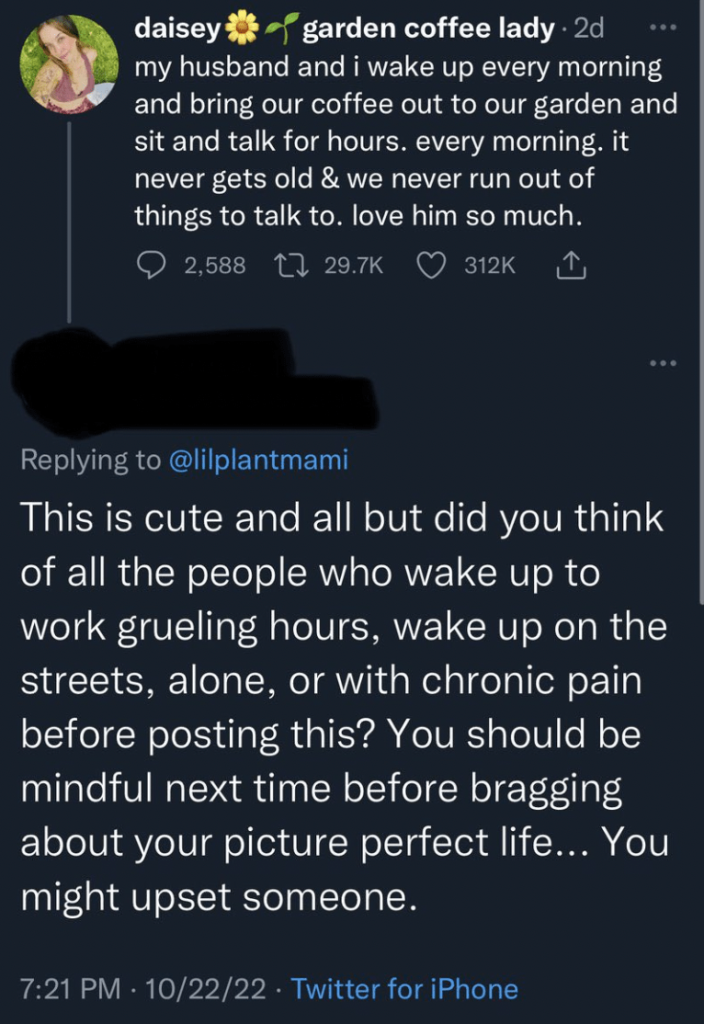If you are someone who spends a lot of time online, you might have heard of the terms “main character syndrome” and “chronically online”. In this blog post, we’re gonna take a look at what exactly this entails and the implications this has on our social relations both online and in real life.

Main Character Syndrome: The Age of Hyper-Individualism
The first phenomenon I want to discuss with you all is the “main character syndrome”. I would say that most young online active people have heard the term thrown around on the internet or even in real life, mostly as banter but it can mean more than that. With the rise of social media, where every individual can curate their own narrative, it’s become increasingly common for people to romanticize their lives, making even the most mundane aspects seem more interesting. This itself doesn’t really have any negative impacts, but people sometimes can develop strong “what about me-ism” mindsets. People feel the need to make everything about themselves, unable to express happiness or joy online without considering those who might be going through difficult times. It’s as if they believe the world revolves around them, and they are the center of the universe. While empathy is an essential trait, it seems to be waning in the face of this self-centric attitude. Some people seem to constantly keep themselves in the forefront of their mind. Even when it is not about themselves directly or not about happiness but instead about complaining, someone will be quick to reply to you stating you have no right to complain because insert person in insert location is experiencing insert worse scenario.

This Main Character Syndrome can also manifest publicly and this can have more grave consequences. There has been a rise of people filming in a public space, and then getting angry when someone interrupts their video. Videos are being posted aimed at publicly shaming individuals, making them the focal point of ridicule. Sometimes this can lead to people in the comments doxxing them (leaking their private information) and sending death threats. It seems as though there is a massive lack of empathic consideration due to online hyper individualism, especially now as we’re seeing its effects in the real world around is.
Chronically Online: The Distorted Perception of Reality
On the other side of the digital divide is the concept of being “Chronically Online.” This term describes a growing segment of the population, especially young people, whose perception of reality has been warped by excessive internet usage. The statistics are startling: according to the CDC, 8-10-year-olds spend an average of six hours online, while 11-14-year-olds clock in at nine hours, and 15-18-year-olds at 7.5 hours daily.1
The problem is not just the amount of time spent online but how it affects our understanding of the world. Being Chronically Online means that people are so immersed in the digital realm that their offline experiences and connections are significantly diminished. This can lead to a disconnection from the real world, with perceptions of reality being shaped by what they encounter online.

The defense that younger people are simply adapting to the digital age is valid to some extent. The pandemic has forced many individuals, regardless of age, to spend more time online. However, for the younger generation, this shift may be particularly profound, as they have fewer years of offline experience to balance their online activities. This can lead to a skewed view of reality and limited face-to-face social interactions.
In conclusion, the combination of Main Character Syndrome and Chronically Online culture is reshaping the way we perceive ourselves and our place in the world. While social media and the internet offer tremendous opportunities for connection and self-expression, it’s vital that we strike a balance between our online and offline lives. A more empathetic, less self-centered digital culture and a conscious effort to unplug and engage in the real world are key to overcoming these challenges.

https://www.cdc.gov/nccdphp/dnpao/multimedia/infographics/getmoving.html ↩︎


I found the content of this blog super interesting! A lot of people actually experience what you describe in this post, and being constantly online is definitely altering the way we perceive ourselves and the world. Concerning the Main Character Syndrome, I’ve felt many times that my life wasn’t good enough because I used to compare myself to users over-romanticising their narratives. What really helped me was understanding that online life doesn’t always reflect offline life. Thankfully, many influencers have publicly opened up about their struggles with anxiety and depression, even though their social media content showed a perfect life. In this online world, finding a balance and gaining awareness between what’s online and offline is essential to maintain mental stability, I think!